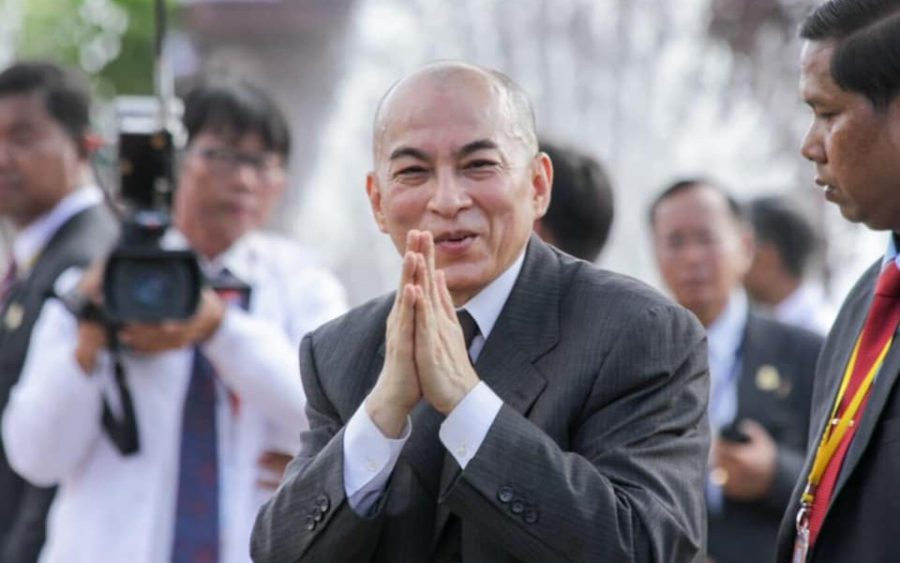Eight amendments to the Cambodian Constitution were signed into law by King Norodom Sihanmoni on Saturday, changes dealing with the transfer of power that have been questioned by the political opposition and local NGOs.
The government has hurriedly passed eight amendments to the Constitution dealing with appointment of an interim prime minister, transfer of power to a new council of ministers and other parliamentary procedures the government says needed clarification to prevent misrepresentation.
The Senate on Friday unanimously passed the amendments with all 57 senators present voting in favor of the bill. A day later, Sihanmoni signed the amendments into law, marking Cambodia’s 10th round of amendments to the nearly 30-year-old document.
Prime Minister Hun Sen last week defended the constitutional amendments proposed by his government, saying there were gaps in parliamentary procedures for transfer of power and the potential for obstructive measures by an opposition party.
The prime minister was speaking at the Royal University of Phnom Penh when he argued that certain political scenarios could cause deadlock in parliament, and the government wanted to clarify procedures that would ensure the smooth transition of power.
While not mentioning the constitutional articles by article, Hun Sen pointed to changes in Article 125 that make clear how a new prime minister, the council of ministers and the government will be appointed in the case of the premier’s death, while also making provisions for a caretaker government.
He said if he were to die on Friday, people would be tripping over each other in a panic, and only the strongest would survive to be the winner. But the amendments now made provisions for this scenario and would prevent any chaotic grabs for power.
Hun Sen also spoke about the selection and duties of the senior-most member of parliament, who forwards lists of lawmakers to fill positions in government and National Assembly committees. The amendments add a provision to appoint the next “senior member” as senior-most “in case this most senior member of the National Assembly cannot fulfill their role.”
The prime minister said parliament could not risk having a scenario where the senior member was from an opposition party and blocked critical appointments, leaving parliament in a stalemate.
“For example, if that senior member is from the opposition, and doesn’t want to lead the National Assembly’s meeting, what do we do?” he said.
The current National Assembly has 125 elected members, all of whom are from Hun Sen’s Cambodian People’s Party. Calculations from the CPP show that the revived Candlelight Party could win as many as 21 seats in the 2023 general election, based on their vote count in the June commune election.
Hun Sen also lashed out at former CNRP president Sam Rainsy, who has criticized the amendments, pointing to Rainsy’s agreement in the 2000s to amend the constitution to allow for a simple majority to form a government rather than a two-thirds majority.
“If Hun Sen is stupid, what is the person who Hun Sen used [for the old amendments]?” he said.
Four small political parties have criticized the amendments and were invited by the Justice Ministry for a meeting to discuss the proposed changes. Ministry spokesperson Chin Malin posted on Facebook that the parties had not responded to the invite so it was assumed their concerns were mitigated.
Ou Chanrath, a senior leader at Cambodia Reform Party which had objected to the amendments, said the announcement for a meeting with the Justice Ministry was on July 29, a day after the amendments were passed by the National Assembly.
“It is true that even if we go and listen, it will still be the same because the National Assembly has already passed it,” he said.












